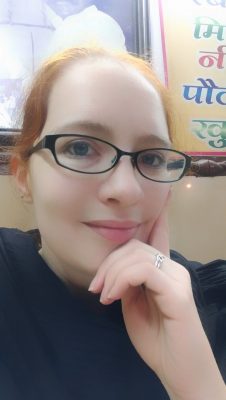South Asian historian explores Reacting to the Past teaching methods

Kelsey Utne, History graduate student
August 31, 2018
Student Spotlight: Kelsey Utne
How will your participation in this institute influence your research and/or teaching?
I benefitted from attending the institute in two major ways. It allowed me to gain first hand experience with the logistics of using it in the classroom. As a student, I had done Model United Nations programs many times, but admittedly I had difficulty wrapping my head around how to have students role play historic events in a way that was not overly predetermined and micromanaged. The Reacting to the Past (RTTP) programming impressed me in how well it accommodated ahistorical possibilities in student role play, while still ensuring that the students also learned the actual history. The second benefit was entirely unplanned. Through participating in the institute, I connected with incredible faculty from institutions across the country. In between sessions and after hours we debated the usefulness (and limits) of immersive pedagogy, accommodating students with trauma and mental health histories, and classrooms as spaces to recreate or dismantle institutional racism. I plan to continue these discussions in preparation for using RTTP in my first First-Year Writing Seminar (FWS) next year.
Kelsey Utne is a Ph.D. student in History at Cornell University. She received a CIRTL travel grant to attend the Reacting to the Past Faculty Institute at Barnard College in June. Read her whole Graduate Student spotlight.


